CBS introduces recycling bins throughout campus: The journey started 2.5 years ago
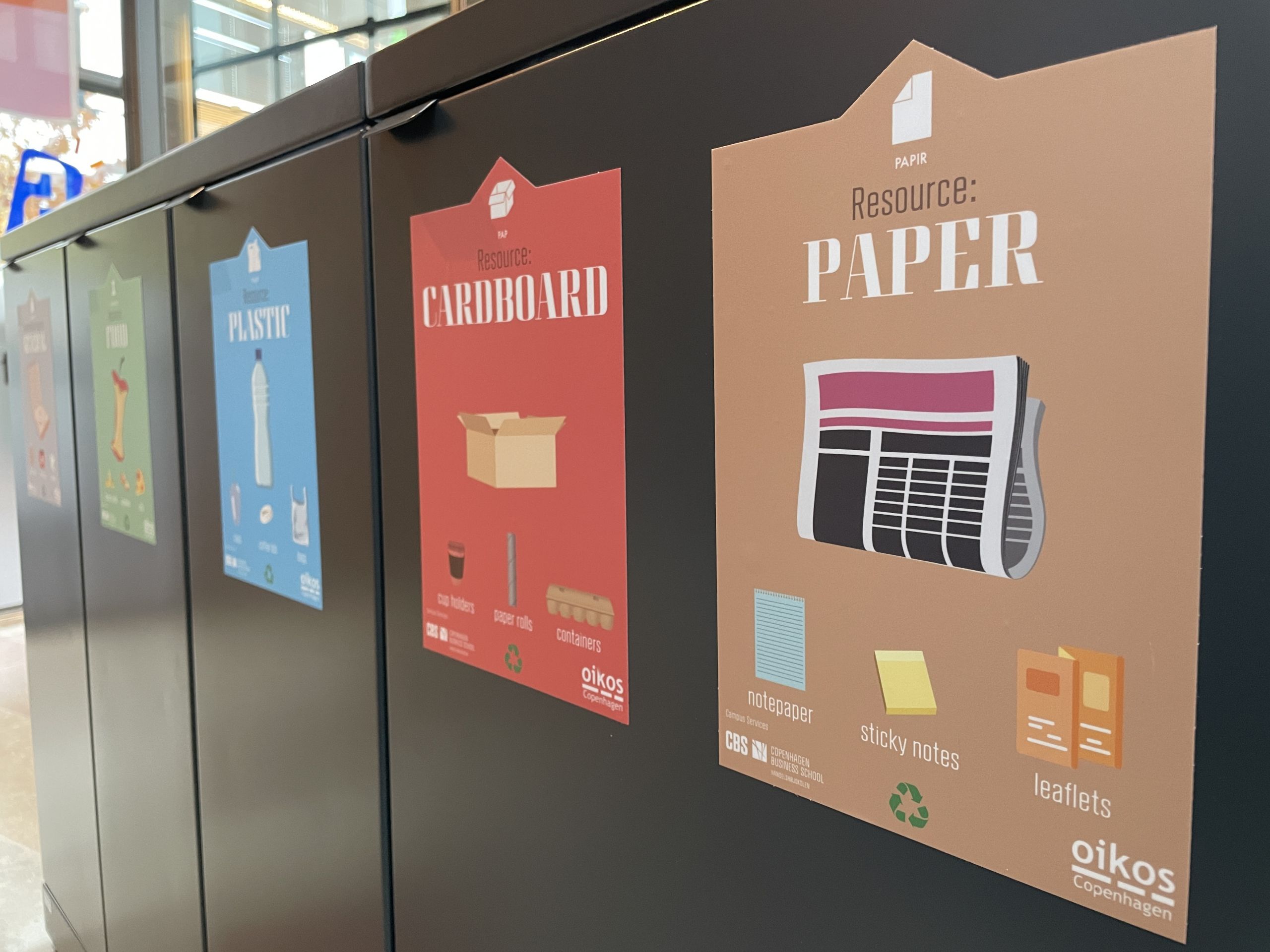
On Wednesday October 27, CBS' new recycling bins were delivered, unpacked and installed throughout campus. (Photo: Anne Thora Lykkegaard)
Now, students and employees can sort their waste at CBS wherever they are on campus in up to seven different fractions. The student organization oikos Copenhagen initiated a pilot project in 2019 that, with help from CBS, grew and become permanent, putting CBS one year ahead of the Danish government’s waste sorting policy, according to the Program Manager.
“Wherever you are on campus, you can see them.”
The statement, made by Karoline Bang Thøfner, Program Manager for CBS’ Campus Sustainability Program, concerns the new recycling bins which, starting from October 27, will be installed around campus.
Students can then sort their waste into five different fractions; general waste, food, paper, cardboard and plastic, while employees will have seven fractions in their recycling systems; general waste, food, paper, cardboard, plastic, glass and metal.
“This is a major achievement. We started work on getting recycling bins at CBS about three years ago, and now they are here,” says David Revez da Silva, Vice President of the student organization oikos Copenhagen, which initiated having recycling bins installed on campus.
The story of CBS recycling bins began in November 2017. CBS WIRE discovered that the contents of recycling bins throughout Solbjerg Plads were not recycled at all. In fact, for six years, the contents had been tossed together at the end of the day.
The article led to a discussion of what CBS’ does to act more sustainably as a university, which revealed that CBS did not, in fact, have an overall strategy for sustainability with goals and initiatives.
Such a strategy was announced in May 2019, the month the student organization oikos Copenhagen, in collaboration with CBS and Spisestuerne, the previous canteen provider, launched a pilot project involving recycling bins located in the canteen area.
The three-month pilot project showed that 50% of the waste at Spisestuerne’s canteen at Solbjerg Plads was sorted compared to zero before the project. The results were so convincing that CBS decided to set them up at all of CBS’ canteens permanently. That was on March 10, 2020. The following day, CBS was locked down and off limits for almost 1.5 years.
“We were able to continue efforts to scale up the project to cover all of CBS despite Covid-19. And this shows that students’ voices are heard at CBS. Students have been asking to recycle their waste at CBS for a long time,” says David Revez da Silva and continues:
“I don’t think CBS has chosen not to introduce recycling bins, but it was just not done until the students started asking for it and saying that they were necessary. CBS heard this.”
Like sorting waste at home – almost
Karoline Bang Thøfner represented CBS in the recycling project in spring this year, and she wondered why CBS did not have recycling bins.
“It is a major achievement that CBS is getting these recycling stations. When I joined the project, I thought: don’t we already do this? I discovered that a lot of private actors are not sorting their waste, like we do at home. The current government target demands that all private organizations sort their waste by 31/12 2022. This puts CBS one year ahead in meeting all the demands set by the government,” she says, underlining that this time, students and employees can be sure the waste is being sorted.
“The company, Henrik Tofteng, which is responsible for picking up and sorting the waste, is very reliable,” she says.
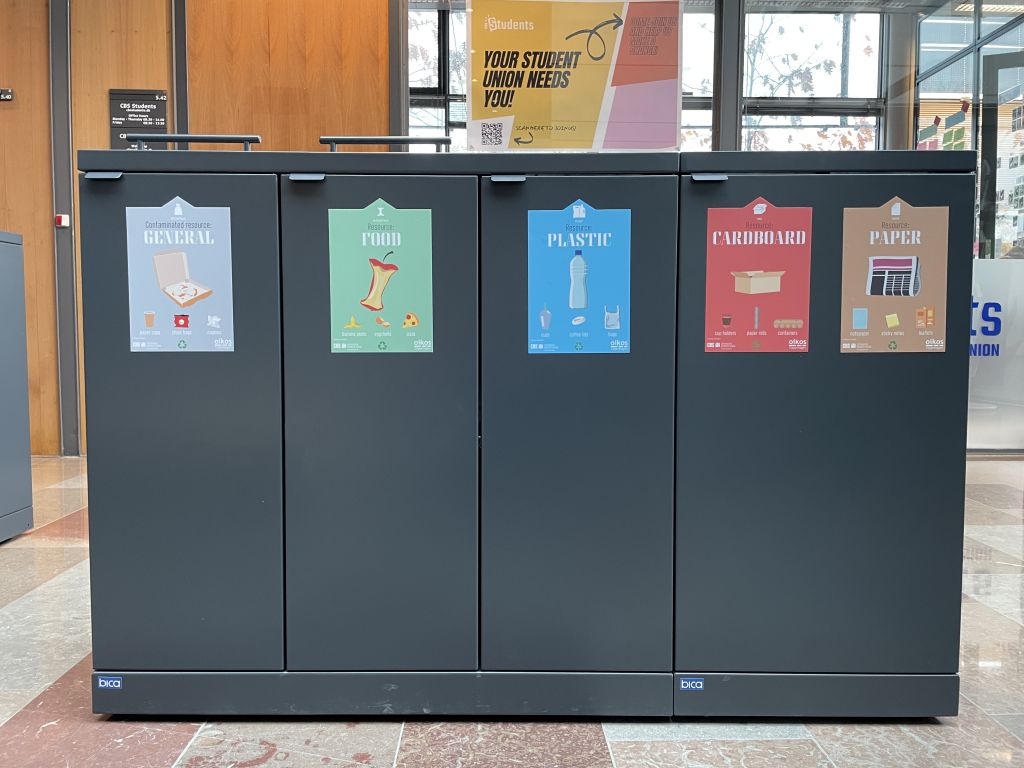
(Photo: Anne Thora Lykkegaard)
Many students and employees are already used to recycling their waste at home, and although this will closely resemble sorting waste at home, some elements are not quite the same, explains Karoline Bang Thøfner.
For example, employees will have to clean glass and metal to remove food residue before throwing it in the metal and glass recycling bins.
“The municipality is not in charge of handling CBS’ waste. We must use a private company, as otherwise, if the municipality did it, the work would be anti-competitive. The private company operates differently to the municipality and cannot, yet, handle glass and metal contaminated with food waste,” she says.
Karoline Bang Thøfner explains that data from the previous pilot projects have revealed the types of waste that employees and students generate and the recycling station devised are suitable for both groups.
For example, employees produce more glass and metal waste, as they have kitchens, while students do not bring glass and metal to CBS.
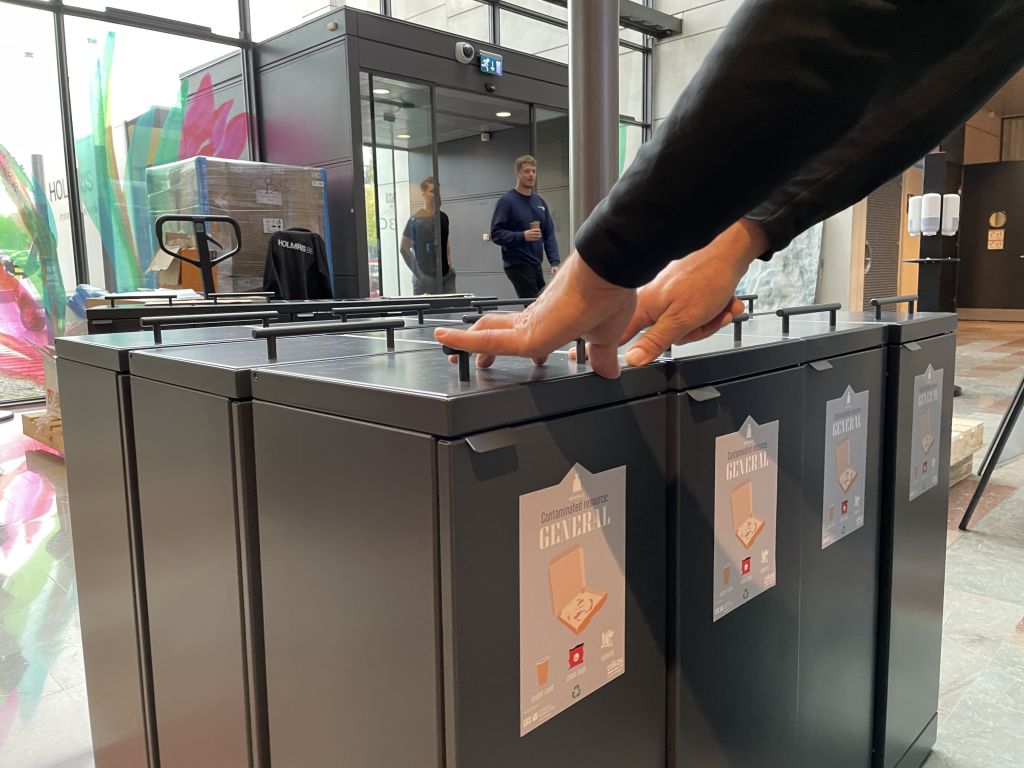
(Photo: Anne Thora Lykkegaard)
Right now, CBS operates with a goal of, by 2025, reducing its general waste to 20% of the total amount of waste.
“Students and employees are going into a period of learning, and they will become better and better at sorting their waste, which means less and less will go to general waste,” says Karoline Bang Thøfner.
“The first few weeks will probably be a mess”
The recycling system has been launched with a video and articles on Share and My CBS that introduce students and employees to the new system. Moreover, an email has been sent to all managers explaining how to use the systems and encouraging employees to use them, explains Karoline Bang Thøfner.
According to her, mistakes will be made in the first couple of months, but she is confident that in time, students and employees will learn how to use the system to perfection.
“Based on what we know from the previous tests, people soon get really good at sorting correctly, but the first few weeks will probably be a mess, and there’s room for that. And from what I hear, both students and employees want this and support the project,” she says.
In about three months, Karoline Bang Thøfner will evaluate the situation to see whether students and employees are experiencing any challenges sorting the waste.
“We will, of course, evaluate and analyze continuously,” she says.



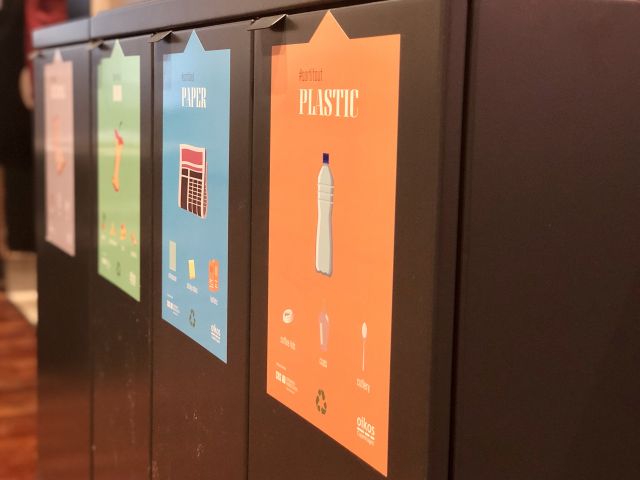
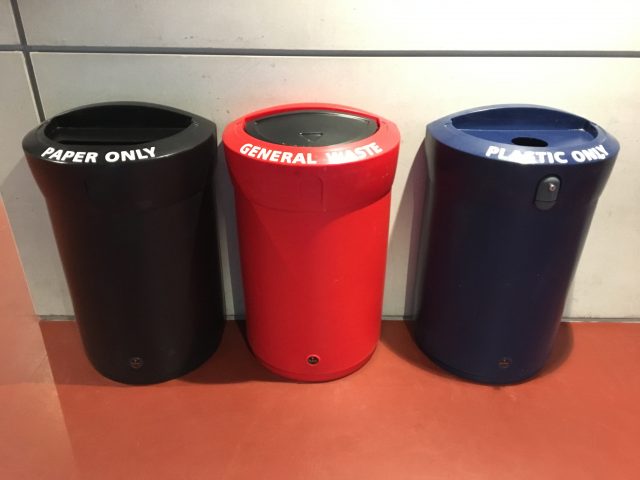
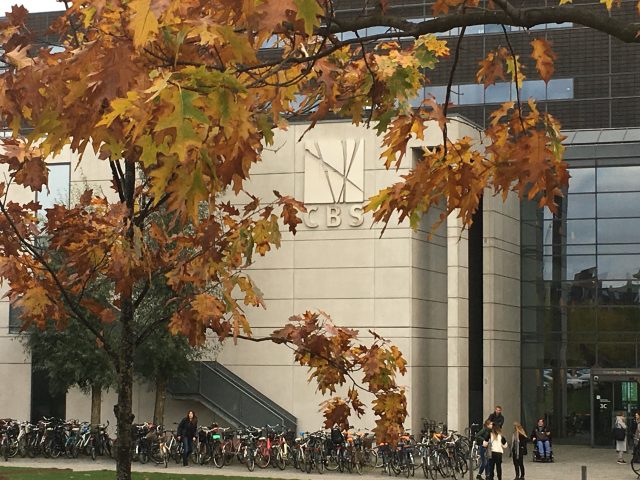
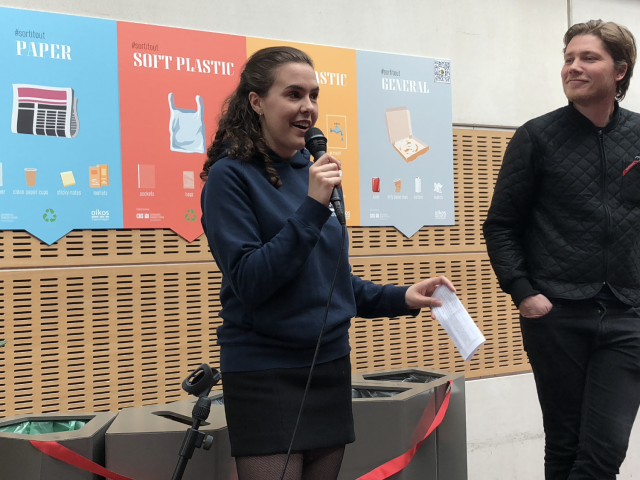
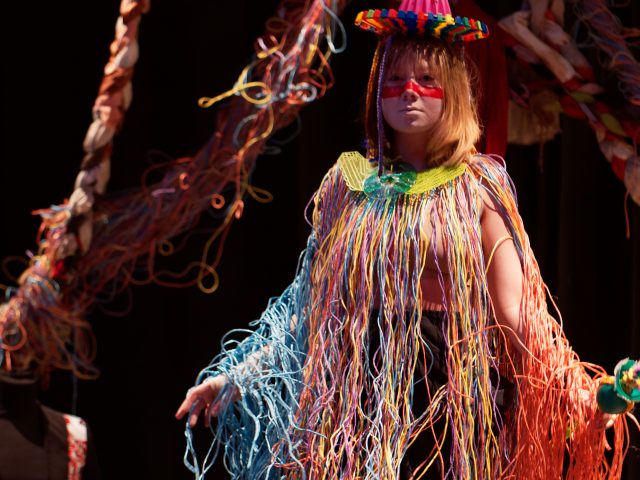
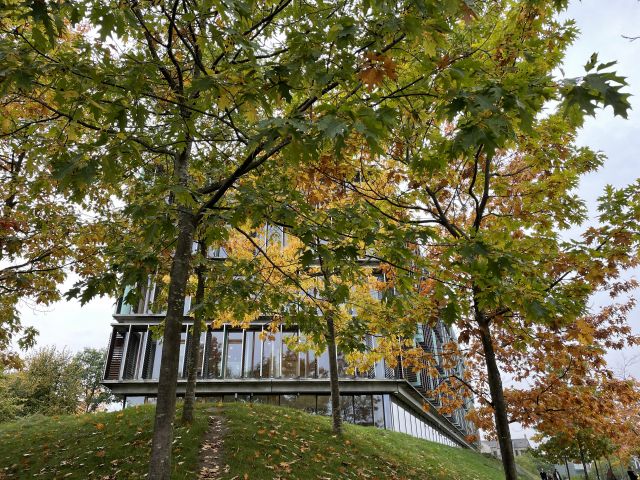
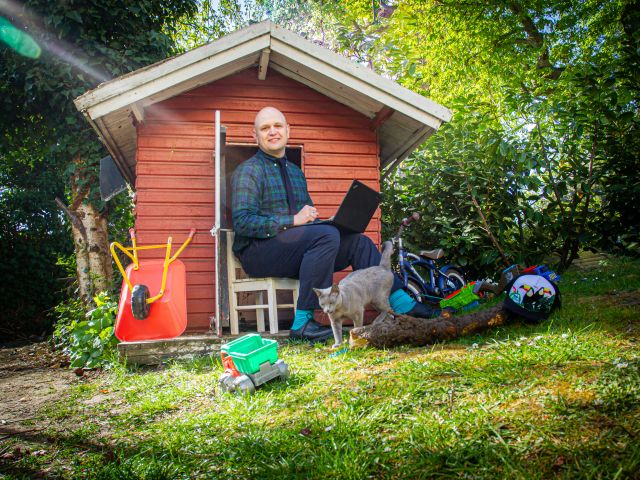




























































































































Comments